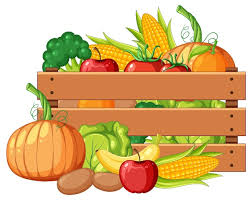Zechariah 14:16 – Then everyone who survives of all the nations that have come against Jerusalem shall go up year after year to worship the King, the Lord of hosts, and to keep the Feast of Booths.
Welcome back, readers! 
Earlier in this chapter we discovered that a multi-nation confederacy would surround the city of Jerusalem and lay siege to it. Although this army was superior in numbers, arms and strategy, God fought on the side of Israel. He not only made a way of escape for the people in Jerusalem, he inflicted horrible wasting diseases upon the enemies of his people.
At some point, God’s people (the Jews and/or the church) would join the fight against these enemy nations and Jerusalem would be rescued. This victory is achieved through a partnership between God and his people.
Although the vast majority is slain, a remnant of these pagans will survive the war. This remnant, which God preserved for himself, is humbled to the point of willing submission to his authority.
At that point, every single one of these pagan (or formerly pagan) nations will send a group of representatives/converts to Jerusalem on a yearly basis for the purpose of publicly worshiping the Lord and observing the Feast of Booths.
Let’s take a moment to review what we know about this important feast.
The Israelite males were to appear at the temple (before the Lord) three times a year – at Passover, Pentecost and the Feast of Tabernacles (II Chronicles 8:1, Deuteronomy 16:16, Exodus 23:17).
The Feast of Tabernacles is also referred to as the Feast of Booths or the Feast of Ingathering. (You can review the specifics in Leviticus 23:33-43.) It was celebrated immediately after the harvest, in the month Tisri (mid September through mid October). The festival lasted eight days – seven days plus an additional day for a holy gathering (Deuteronomy 16:13).
During these eight days, special sacrifices were made at the temple (Numbers 29:13-38). The burnt offerings of this feast were far more in number than those offered at any other festival. Every day two rams, fourteen lambs and a young goat were to be offered. In addition, a different number of bulls were offered each day. By the end of the feast, a total of 70 bulls were sacrificed.
This festival had an unusual component - for seven days the people left the comfort of their homes and lived in booths or huts. These were temporary structures built from tree branches. It was common to construct the booths using branches of pine, myrtle and palm.
This festival commemorated two great things.
One, it was to be a memorial of the wilderness wanderings:
Leviticus 23:42-43 - You shall dwell in booths seven days; all that are born Israelites shall dwell in booths: that your generations may know that I made the children of Israel to dwell in booths, when I brought them out of the land of Egypt: I am the LORD your God.
In other words, the people were to remind themselves that their ancestors rebelled against the Lord by refusing to enter the Promised Land. As a result of their unbelief and disobedience, they were forced to wander through the desert, moving from place to place for 40 years, until the men of the unbelieving generation died (Numbers 32:13). During this time, they frequently erected these temporary booths for shelter.
Second, the festival was a celebration of thanksgiving for the harvest. The timing of this festival coincided with the gathering of the corn, wine and oil. It was a time of great joy and a time of rest which came after their labor was finished. 
At some point later on (after the time of Zechariah but before the time of Christ), the Jews made two additions to their celebration of the Feast of Tabernacles.
First of all, on the final day of the feast, the people would gather in the temple at the time of the morning sacrifice. Once the sacrifice had been prepared and placed upon the altar, one of the priests would get water from the pool of Siloam. As he entered the temple and ascended up to the altar, trumpets were sounded. The water was poured into a silver basin with a small opening at the bottom, so that the water slowly flowed onto the sacrifice as it burned.
This ceremony served as a remembrance of the time when God made water to flow out of the rock at Horeb (Exodus 17:6). Had he not done so, the Israelites would have perished/died from thirst on that very spot.
This ceremony served as the background for the words of Jesus regarding the work of Holy Spirit:
John 7:37-39 - In the last day, that great day of the feast, Jesus stood and cried, saying, If any man thirst, let him come unto me, and drink. He that believes on me, as the scripture has said, out of his heart shall flow rivers of living water. (But this spoke he of the Spirit, whom they that believe on him should receive: for the Holy Spirit was not yet given; because that Jesus was not yet glorified.)
The second tradition added to the feast of Tabernacles was to place a great display of lights in the temple, in the court of the women. The purpose of the lights was to commemorate the pillar of fire/cloud which led them through the wilderness at night. The fire illuminated their way, kept them safe from predators and provided warmth/heat.
What are the spiritual meanings of the Feast of Booths/Tabernacles?
The practice of dwelling in temporary booths is a picture of the incarnation of Christ, who was made flesh and ‘tabernacled’ or lived among us for a time. To celebrate this feast is to acknowledge that Jesus came in the flesh for the purpose of securing our salvation through his death and resurrection.
It has also been pointed out that the wilderness wandering is symbolic of a life of sin – it leads nowhere and ultimately results in death. Only Christ (the pillar of fire which illuminates the way to salvation) is able to lead his people to the Promised Land of salvation/the kingdom of heaven.
Furthermore, the water which poured from the rock and Horeb as well as the commemorative water poured from the pool of Siloam, both affirm the life-giving work of Holy Spirit in the lives of believers.
Meanwhile, the ingathering of the harvest indicates the salvation of the Gentile nations.
It makes perfect sense for the nations to send representatives to Jerusalem to worship the Lord and celebrate this festival, because ALL nations will be the receipients of the blessings of the Festival of Booths!
Let me offer you some encouragement, relief and strength:
The Old Testament feasts were not just random, insignificant ceremonies. Each one has significant meaning in the spiritual realm. 
The Feast of Booths/Tabernacles celebrates both temporal blessings (the harvest of crops) as well as spiritual blessings (freedome from sin; salvation for all). In fact, this feast touches on our past, present and future.
Past – As sinners saved by grace, we are reminded that at one point we were wandering in the desert of sin with no means to save ourselves. However, Jesus came and provided the light of the gospel, leading us out of darkness and into his glorious light.
Take a moment to reflect on your own salvation experience, and give Jesus the glory for it.
Present – The Feast of Booths is joyous celebration of the harvest. It is a time to try and count the myriad of blessings that God has given to us.
Think about this: If salvation was the only benefit God gave us, that would be extraordinary enough. But he has given us so much more! He has given us fellowship with Holy Spirit. He has given us his word and his authority in the spiritual realm. He has promised us that he would never leave us. He tells us (over and over) that there is no reason to fear. He is our leader and he has never lost a battle yet!
He heals, restores, resurrects, provides, leads and performs the miraculous. He chooses to partner with us in this life.
But wait - there's more! God provides us with an abundant supply of earthly blessings as well.
What are some of the incredible things God has done for you spiritually? How about materially?
Future – Once our victorious life on earth is finished, God takes us to heaven where we will dwell with him forever. There we will see, hear and experience things that are so incredible, we can’t even imagine them!!
As you remind yourself of the many blessing of the Lord, allow praise and worship to rise from the deepest part of your soul and ascend into the throne room of God!
